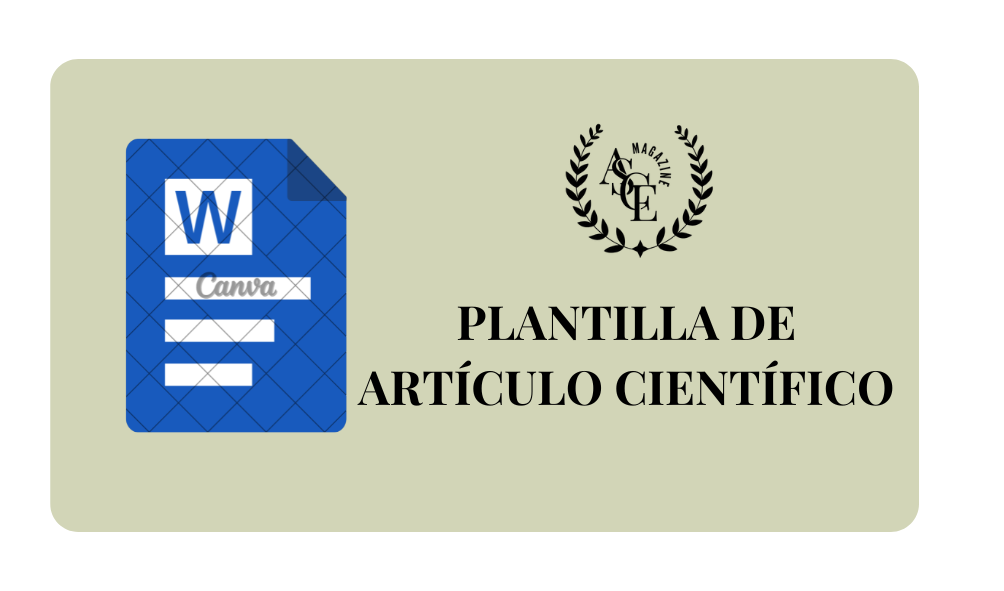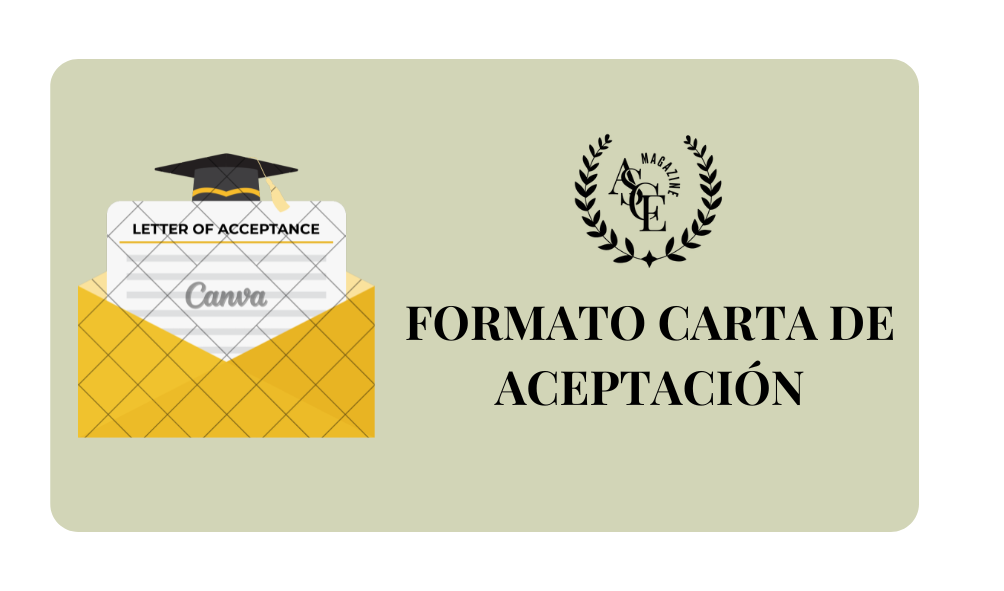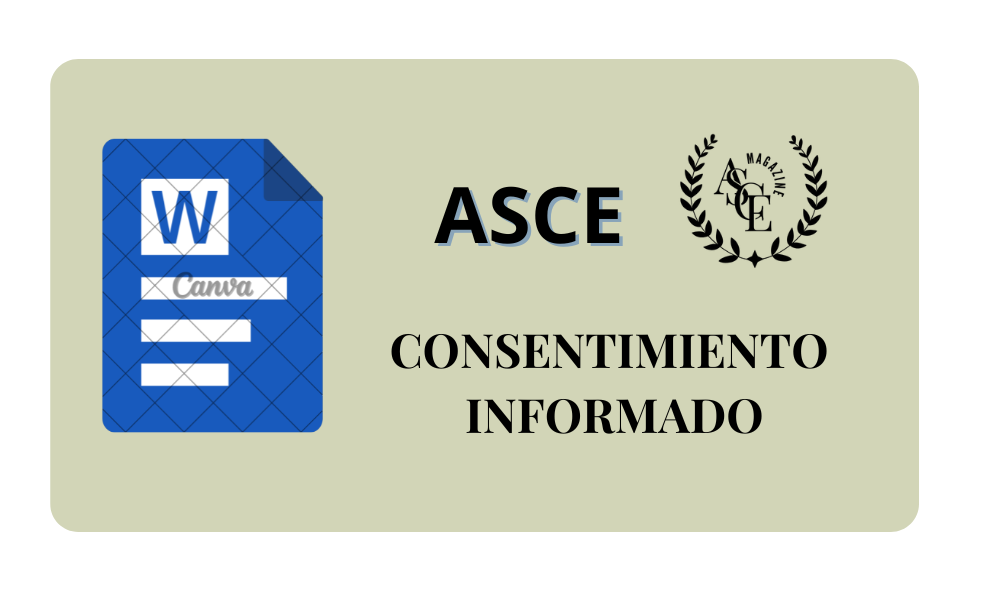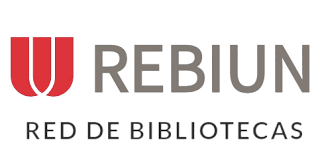El juego simbólico como vehículo para la autorregulación emocional y el desarrollo del lenguaje oral en educación inicial: Un abordaje desde la neuroeducación y la práctica reflexiva docente
DOI:
https://doi.org/10.70577/ASCE/2719.2742/2025Palabras clave:
Juego Simbólico, Autorregulación Emocional, Lenguaje Oral, Educación Inicial, Neuroeducación, Práctica Reflexiva, Desarrollo Socioemocional.Resumen
Para Indriani (2021), la integración de la dimensión cognitiva con las dimensiones socioemocionales y lingüísticas se lleva a cabo a través del juego simbólico. Sin embargo, se sabe poco sobre el papel de la autorregulación emocional y el papel del discurso hablado como el medio principal de comunicación con otros niños y adultos en el contexto del aprendizaje autodirigido, la neuroeducación y la práctica docente reflexiva. Para investigar esto, nos centramos en el papel del juego simbólico en la autorregulación de las emociones y la mejora de las habilidades de lenguaje hablado en niños en edad preescolar a través de enfoques neuroeducativos y reflexivos de sus propias prácticas de enseñanza. El estudio se llevó a cabo en un enfoque cualitativo en forma de un diseño de estudio de caso múltiple y comprendió 40 niños de 4 a 6 años, así como 10 docentes de educación preescolar. Tecnicas de recolección y notas de campo formaron la base de la autorreflexión del investigador para construir las narrativas de datos. El análisis se realizó utilizando los principios del razonamiento deductivo, análisis temático y triangulación de fuentes para mejorar la validez de los resultados. Los resultados indican que el juego de simulación mejora la capacidad creativa para narrar historias, aumenta el vocabulario utilizado y fomenta la interacción comunicativa. También mejora la autorregulación emocional, como se observa en la expresión simbólica de las emociones, el desarrollo de la empatía y la reducción de comportamientos disruptivos. La práctica reflexiva del docente, informada por la neuroeducación, permitió adaptar las estrategias pedagógicas a las necesidades identificadas en el aula.
Descargas
Citas
Arellano, Y. M. P. (2025). El juego simbólico: un recurso de aprendizaje temprano. Revista Invecom, 4(1), 12–23. Recuperado de https://www.revistainvecom.org/index.php/invecom/article/view/3757
Ávila Preciado, A. del R., Loor Loor, W. del J., Padilla Iñiguez, T. M., Plaza Bustos, K. A., & Rodríguez Navarrete, I. M. (2025). El papel del juego en el desarrollo socio-emocional en la educación inicial. Ciencia Latina Revista Científica Multidisciplinar, 8(5), 8940–8960. https://doi.org/10.37811/cl_rcm.v8i5.14286 DOI: https://doi.org/10.37811/cl_rcm.v8i5.14286
Bartholo Hurtado, K. (2022). El juego libre como estrategia para la regulación emocional en niños de educación inicial. Instituto Tecnológico Superior, Perú. Recuperado de https://repositorio.its.edu.pe/bitstream/handle/20.500.14360/14/BartoloHurtado_Kelly.pdf?isAllowed=y&sequence=1
Bernal Parraga , A. P., Salinas Rivera, I. K., Allauca Melena, M. V., Vargas Solis Gisenia, G. A., Zambrano Lamilla, L. M., Palacios Cedeño, G. E., & Mena Moya, V. M. (2024). Integración de Tecnologías Digitales en la Enseñanza de Lengua y Litera-tura: Impacto en la Comprensión Lectora y la Creatividad en Educación Básica. Ciencia Latina Revista Científica Multidisciplinar, 8(4), 9683-9701. https://doi.org/10.37811/cl_rcm.v8i4.13117 DOI: https://doi.org/10.37811/cl_rcm.v8i4.13117
Bernal Párraga , A. P., Toapanta Guanoquiza, M. J., Martínez Oviedo, M. Y., Correa Pardo, J. A., Ortiz Rosillo, A., Guerra Altamirano, I. del C., & Molina Ayala, R. E. (2024). Aprendizaje Basado en Role-Playing: Fomentando la Creatividad y el Pensamiento Crítico desde Temprana Edad. Ciencia Latina Revista Científica Multidisciplinar, 8(4), 1437-1461. https://doi.org/10.37811/cl_rcm.v8i4.12389 DOI: https://doi.org/10.37811/cl_rcm.v8i4.12389
Bernal Párraga, A. P., Alcívar Vélez, V. E., Pinargote Carreño, V. G., Pulgarín Feijoo, Y. A., & Medina Garate, C. L. (2025). Pensamiento lógico y resolución de problemas: El uso de estrategias de aprendizaje colaborativo para desarrollar habilidades de razonamiento matemático en contextos cotidianos. Arandu UTIC, 12 (1), 360–378. https://doi.org/10.69639/arandu.v12i1.605 DOI: https://doi.org/10.69639/arandu.v12i1.605
Bernal Párraga, A. P., Armijos Minuche, A. de L., Granda Floril, S. C., Belduma Bravo, J. del C., Quiroz Ponce, K. G., & Aguirre Zambrano, J. A. (2025). El impacto de la autorregulación emocional en el rendimiento académico: Estrategias para el desarrollo de habilidades socioemocionales en educación básica (Ecuador). O Universo Observável, 2(2). https://doi.org/10.69720/29660599.2025.00053 DOI: https://doi.org/10.69720/29660599.2025.00053
Bernal Parraga, A. P., Toapanta Guanoquiza, M. J., Sandra Veronica, L. P., Borja Ulloa, C. R., Esteves Macias, J. C., Dias Mena, B. V., & Orozco Maldonado, M. E. (2024). Desarrollo de Habilidades Sociales y Emocionales a través de Proyectos Colaborativos en Educación Inicial: Estrategias Inclusivas para Estudian-tes con Necesidades Educativas Especiales. Ciencia Latina Revista Científica Multidisciplinar, 8(4), 10134-10154. https://doi.org/10.37811/cl_rcm.v8i4.13156 DOI: https://doi.org/10.37811/cl_rcm.v8i4.13156
Bredikyte, M., & Brandisauskiene, A. (2023). Pretend play as the space for development of self-regulation: Cultural-historical perspective. Frontiers in Psychology, 14, article 1186512. https://doi.org/10.3389/fpsyg.2023.1186512 DOI: https://doi.org/10.3389/fpsyg.2023.1186512
Bustamante Mora , F. F., Troya Santillán, B. N., Barboto Sanabria, C. M., Hernández Centeno, J. A., Martínez Oviedo, M. Y., Valencia Trujillo, G. D., & Bernal Parraga, A. P. (2024). El Impacto del Juego en el Desarrollo Cognitivo y Socioemocional en la Educación Inicial Estrategias Pedagógicas para Fomentar el Aprendizaje. Ciencia Latina Revista Científica Multidisciplinar, 8(5), 4201-4217. https://doi.org/10.37811/cl_rcm.v8i5.13886 DOI: https://doi.org/10.37811/cl_rcm.v8i5.13886
Cáceres, J., Luna, M., Romero, L., & Garcés, S. (2024). Juego simbólico: un proceso dinámico para potenciar las habilidades socioemocionales y artísticas en los niños de educación inicial. Ciencia Latina Revista Científica Multidisciplinar, 8(5), 1989–2004. https://doi.org/10.37811/cl_rcm.v8i5.13670 DOI: https://doi.org/10.37811/cl_rcm.v8i5.13670
Campos, S. M. M. (2025). El juego simbólico como estrategia para el desarrollo del lenguaje oral en la educación inicial: Un enfoque neuroeducativo. Innovarium, 2(1), 45–61. https://doi.org/10.70577/ASCE/1646.1668/2025 DOI: https://doi.org/10.70577/ASCE/1646.1668/2025
Cárdenas Irúa, M. (2022). El juego simbólico y su influencia en el desarrollo del lenguaje oral en niños de 5 años. Universidad Central del Ecuador. Recuperado de https://www.dspace.uce.edu.ec/bitstreams/ae584ed6-da79-4fd4-bfe3-fbb199397d55/download
Colliver, Y., et al. (2022). Free play predicts self-regulation years later: Longitudinal evidence from early childhood. Early Childhood Research Quarterly, 62, 100–110. https://doi.org/10.1016/j.ecresq.2021.03.001 DOI: https://doi.org/10.1016/j.ecresq.2021.11.011
Creaghe, N., Quinn, S., & Kidd, E. (2021). Symbolic play provides a fertile context for language development. Infancy, 00, 1–31. https://doi.org/10.1111/infa.12422 DOI: https://doi.org/10.31234/osf.io/eg8yz
Creswell, J. W., & Poth, C. N. (2018). Qualitative inquiry and research design: Choosing among five approaches (4th ed.). SAGE.
Fajardo Lopez , C. E., Yagual Cedeño, L. L., Quezada Sanchez, C. F., Toapanta Guanoquiza, M. J., Moreira Velez, K. L., Sandra Veronica, L. P., & Bernal Parraga , A. P. (2024). El Papel de los Padres en la Educación Inicial": Estrategias Innovadoras para la Participación Familiar. Ciencia Latina Revista Científica Multidisciplinar, 8(4), 9881-9900. https://doi.org/10.37811/cl_rcm.v8i4.13139 DOI: https://doi.org/10.37811/cl_rcm.v8i4.13139
Garaigordobil, M. (2022). Developing children’s creativity and social-emotional competencies through cooperative-creative play. Frontiers in Psychology. https://doi.org/10.3389/fpsyg.2022.9590021
Hernández-Sampieri, R., & Mendoza, C. (2018). Metodología de la investigación: Las rutas cuantitativa, cualitativa y mixta. McGraw-Hill.
Herrera-Occ, M., & Gonzales-Soto, V. (2023). El juego simbólico en el desarrollo de competencias en la primera infancia. Revista Docentes 2.0, 16(2), 39–49. https://doi.org/10.37843/rted.v16i2.372 DOI: https://doi.org/10.37843/rted.v16i2.372
Jara Chiriboga , S. P., Troncoso Burgos, A. L., Ruiz Avila, M. M., Cosquillo Chida, J. L., Aldas Macias, K. J., Castro Morante, Y. E., & Bernal Párraga, A. P. (2025). Inteligencia Artificial y Aprendizaje Personalizado en Lenguas Extranjeras: Un Análisis de los Chatbots y los Asistentes Virtuales en Educación. Revista Científica De Salud Y Desarrollo Humano , 6(1), 882–905. https://doi.org/10.61368/r.s.d.h.v6i1.515 DOI: https://doi.org/10.61368/r.s.d.h.v6i1.515
Madrid Toapanta , A. L., Véliz Cedeño, M. C., Bernal Párraga, A. P., Toapanta Cadena, S. J., Abad Troya, L., Atarihuana Eras, M. L., & Macias Garcia, S. V. (2024). Estrategias Activas para Mejorar las Competencias Lectoras en Edades Tempranas. Ciencia Latina Revista Científica Multidisciplinar, 8(4), 10646-10664. https://doi.org/10.37811/cl_rcm.v8i4.13205 DOI: https://doi.org/10.37811/cl_rcm.v8i4.13205
Monar, G. A. P. (2025). Impacto del juego simbólico en el desarrollo comunicativo oral. Innovarium. https://revinde.org/index.php/innovarium/article/view/47
Mora Villamar, F. M., Bernal Párraga, A. P., Molina Ayala, E. T., Salazar Veliz, E. T., Padilla Chicaiza, V. A., & Zambrano Lamilla, L. M. (2024). Innovaciones en la didáctica de la lengua y literatura: estrategias del siglo XXI. Ciencia Latina Revista Científica Multidisciplinar, 8(3), 3852-3879. https://doi.org/10.37811/cl_rcm.v8i3.11595 DOI: https://doi.org/10.37811/cl_rcm.v8i3.11595
Morales, E. A., & Escobar, M. A. (2021). Juego simbólico y desarrollo del lenguaje en la educación inicial: Una revisión de la literatura. Innovarium, 1(2), 33–47. Recuperado de https://revinde.org/index.php/innovarium/article/view/28
Nilfyr, P. (2025). Neuroeducation and symbolic play: Cognitive and emotional benefits in early childhood. Education Sciences, 15(2), 137. https://doi.org/10.3390/educsci15020137 DOI: https://doi.org/10.3390/educsci15020137
Oğuz, S. N. (2025). A qualitative research on emotion regulation processes in symbolic play. Frontiers in Psychology. https://doi.org/10.3389/fpsyg.2025.1611554 DOI: https://doi.org/10.3389/fpsyg.2025.1611554
Orr, E., & Geva, R. (2015). Symbolic play and language development. Infant Behavior and Development, 38, 147–161. https://doi.org/10.1016/j.infbeh.2015.01.002 DOI: https://doi.org/10.1016/j.infbeh.2015.01.002
Quinn, S., Donnelly, S., & Kidd, E. (2018). The relationship between symbolic play and language acquisition: A meta-analytic review. Developmental Review, 49, 121–135. https://doi.org/10.1016/j.dr.2018.05.005 DOI: https://doi.org/10.1016/j.dr.2018.05.005
Quiridumbay, S. (2025). Estrategias de juego simbólico y autorregulación emocional en la educación inicial desde la neuroeducación. Innovarium, 3(2), 115–128. Recuperado de https://magazineasce.com/index.php/1/article/view/155
Reyes Mauricio, A., & Guerrero Meza, P. (2025). Juego simbólico y desarrollo del lenguaje en la infancia: Una revisión sistemática. Innovarium, 2(1), 28–44. Recuperado de https://revinde.org/index.php/innovarium/article/download/28/29
Richard, S. (2023). Pretend play-based training improves socio-emotional outcomes in preschool children. Journal of Experimental Child Psychology, 229, 105–110. https://doi.org/10.1016/j.jecp.2023.105110
Santana Mero, A. P., Bernal Párraga, A. P., Herrera Cantos, J. F., Bayas Chacha, L. M., Muñoz Solorzano, J. M., Ordoñez Ruiz, I., Santin Castillo, A. P., & Jijon Sacon, F. J. (2024). Aprendizaje Adaptativo: Innovaciones en la Personalización del Proceso Educativo en Lengua y Literatura a través de la Tecnología. Ciencia Latina Revista Científica Multidisciplinar, 8(4), 480-517. https://doi.org/10.37811/cl_rcm.v8i4.12292 DOI: https://doi.org/10.37811/cl_rcm.v8i4.12292
Scalise, N. R. (2021). Symbolic magnitude understanding predicts preschoolers’ mathematical skills. Journal of Early Childhood Research, 19(3), 1888732. https://doi.org/10.1080/15248372.2021.1888732 DOI: https://doi.org/10.1080/15248372.2021.1888732
Shpendi Şirin, T. (2025). Supporting children at developmental risk with symbolic play: A case study. Kalem Eğitim ve İnsan Bilimleri Dergisi, 15(1), 233–245. https://doi.org/10.23863/kalem.2024.306 DOI: https://doi.org/10.23863/kalem.2025.306
Stavrou, P. (2019). The development of emotional regulation in pre-schoolers: The role of sociodramatic play. Psychology, 10, 62–78. https://doi.org/10.4236/psych.2019.101005 DOI: https://doi.org/10.4236/psych.2019.101005
Stephens, K. (2022). Preschoolers’ cognitive and emotional self-regulation in pretend play: Relations with executive functions and quality of play. Infant and Child Development. https://doi.org/10.1002/icd.2234 DOI: https://doi.org/10.1002/icd.2234
Tello Mayorga, L. E., Bowen Castro, D. J., Rosero Ubidia , A. M., Rea Elizalde, C. A., & Bernal Parraga, A. P. (2025). El papel del orientador educativo en la prevención del acoso escolar modelos de intervención basados en evidencia . ASCE, 4(3), 1089–1115. https://doi.org/10.70577/ASCE/1089.1115/2025 DOI: https://doi.org/10.70577/ASCE/1089.1115/2025
Torres Illescas, V., Villacrés Prieto, P., Román Cabrera, J., Bernal Párraga, A. (2024). Charting the Path of Reading Development: A Study on the Importance and Effective Strategies for Reading in Early Ages Based on Technology. In: Gervasi, O., Murgante, B., Garau, C., Taniar, D., C. Rocha, A.M.A., Faginas Lago, M.N. (eds) Computational Science and Its Applications – ICCSA 2024 Workshops. ICCSA 2024. Lecture Notes in Computer Science, vol 14820. Springer, Cham. https://doi.org/10.1007/978-3-031-65285-1_2 DOI: https://doi.org/10.1007/978-3-031-65285-1_2
Veraksa, N. E., et al. (2025). Non-therapeutic play to overcome negative emotional symptoms and improve emotional intelligence in preschool-aged children. PLoS ONE. https://doi.org/10.1371/journal.pone.XXXXX DOI: https://doi.org/10.3389/fpsyg.2025.1475387
Vygotsky, L. S. (1932). El juego y su papel en el desarrollo psíquico del niño (Obra original publicada en 1920). Revista de Ciencias de la Educación, 12(1), 15–28. Recuperado de https://magazineasce.com/index.php/1/article/view/368
Zambrano Vergara, B. J., Bernal Párraga, A. P., Nivela Cedeño, A. N., Garcia Jimenez , D. I., Guevara Guevara, N. P., & Bravo Alcívar, G. M. (2024). Estrategias de Gestión de Aula para Fomentar el Aprendizaje Autónomo en la Educación Inicial. Ciencia Latina Revista Científica Multidisciplinar, 8(3), 5379-5406. https://doi.org/10.37811/cl_rcm.v8i3.11745 DOI: https://doi.org/10.37811/cl_rcm.v8i3.11745
Descargas
Publicado
Cómo citar
Número
Sección
Licencia
Derechos de autor 2025 Johanna Graciela Briones Franco, Vilma Patricia Ponce Uzhca, Andrea Michelle Tisalema Fiallos, Piedad Verónica Acosta Chafuel, Martha Karina Ochoa Briones

Esta obra está bajo una licencia internacional Creative Commons Atribución-NoComercial-SinDerivadas 4.0.
Eres libre de:
- Compartir : copiar y redistribuir el material en cualquier medio o formato
- Adaptar : remezclar, transformar y desarrollar el material
- El licenciante no puede revocar estas libertades siempre y cuando usted cumpla con los términos de la licencia.
En los siguientes términos:
- Atribución : Debe otorgar el crédito correspondiente , proporcionar un enlace a la licencia e indicar si se realizaron cambios . Puede hacerlo de cualquier manera razonable, pero no de ninguna manera que sugiera que el licenciante lo respalda a usted o a su uso.
- No comercial : no puede utilizar el material con fines comerciales .
- CompartirIgual — Si remezcla, transforma o construye sobre el material, debe distribuir sus contribuciones bajo la misma licencia que el original.
- Sin restricciones adicionales : no puede aplicar términos legales ni medidas tecnológicas que restrinjan legalmente a otros hacer algo que la licencia permite.

























